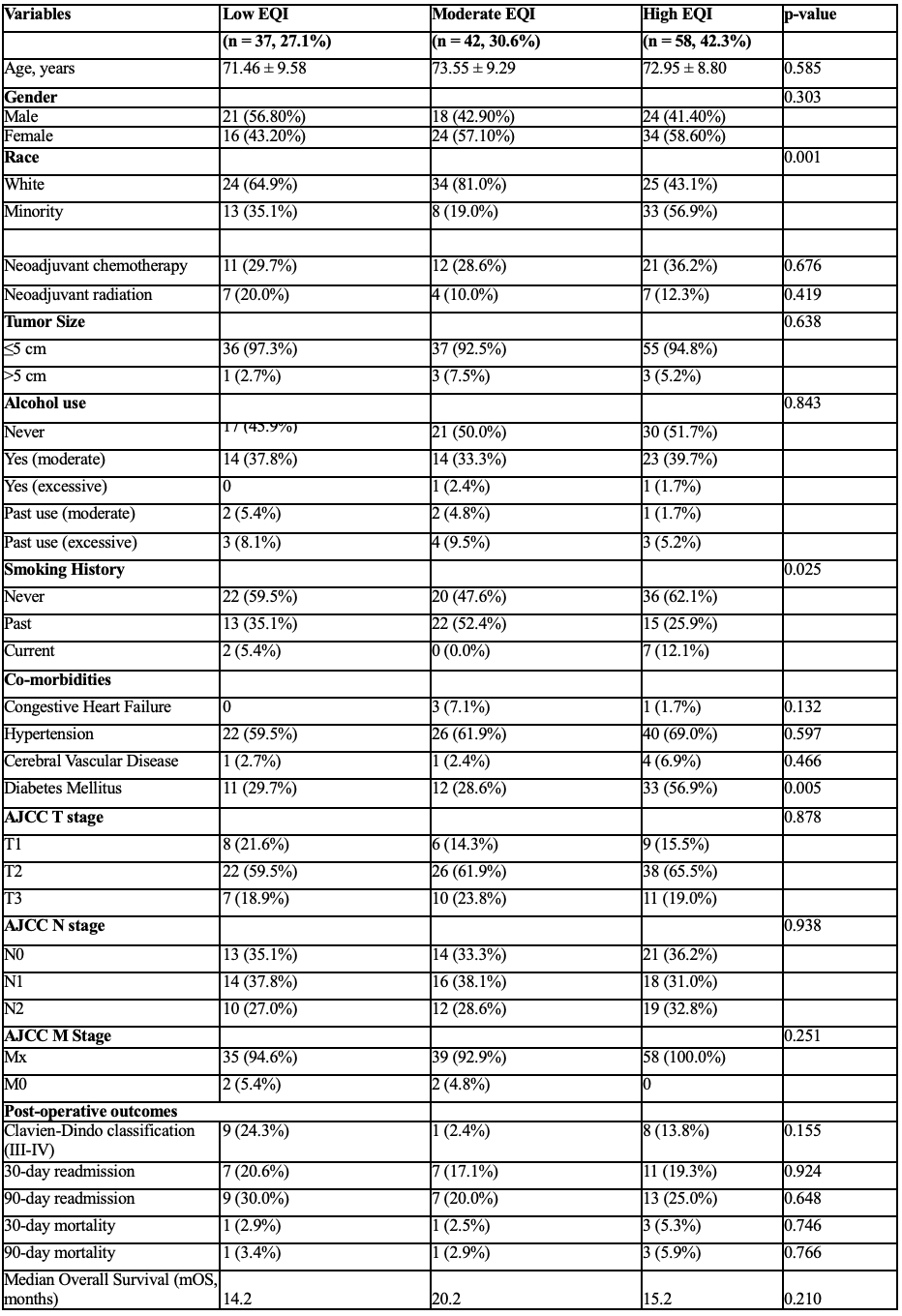Introduction:
The influence of environmental factors on health outcomes has garnered attention in recent years. Previous studies have indicated a potential association between the Environmental Quality Index (EQI) and surgical outcomes in cancer patients. We explored the relationship between EQI and outcomes of patient undergoing pancreaticoduodenectomy (PD) for pancreatic adenocarcinoma (PDAC).
Methods:
We retrospectively analyzed patients who underwent PD at Northwell Health between 2009-2023. Based on their residence address, patients were categorized as living in a low, moderate, or high EQI county, as indicated by the US Environmental Protection Agency’s EQI data. A high EQI rating denoted poorer environmental quality, while a low EQI rating signified better environmental conditions.
ANOVA and Chi-squared test were used as appropriate to detect differences across EQI groups. Differences in survival were estimated with Kaplan-Meier technique.
Results:
Out of 250 patients undergoing PD for PDAC, EQI data was available for 137. Of those, 37 (27.1%) lived in a low EQI county, 42 (30.6%) in a moderate EQI county, and 58 (42.3%) in a high EQI county. Median age and gender distribution were similar across EQI groups (p=0.585 and 0.303). The high EQI group showed a higher prevalence of minorities and current tobacco users (p=0.001, p=0.025). Additionally, this group exhibited a greater incidence of diabetes (p=0.005). In contrast, no significant differences were found in AJCC cancer staging, neoadjuvant chemotherapy or radiation administration, tumor size, alcohol consumption patterns, and other comorbidities. There were no differences in Clavien-Dindo class III-IV complications (p=0.155), 90-day mortality (p=0.766) and median overall survival (p=0.210, Table 1).
Conclusion:
The absence of significant differences in survival rates and mortalities among patients from different EQI areas treated at Northwell hospitals, suggests that our programmatic standardization of care across a large diverse health care system is effective in yielding equivalent outcomes despite diverse EQI in our patient population. Nevertheless, significant disparities found in racial composition, diabetes prevalence, and smoking habits highlight areas where environmental factors may influence health status. Further research is warranted to understand the interplay between environmental quality and these specific health outcomes, aiming to improve targeted healthcare strategies.

Table 1. Patient Characteristics and Outcomes by Environmental Quality Index (EQI) in Pancreaticoduodenectomy Cases.